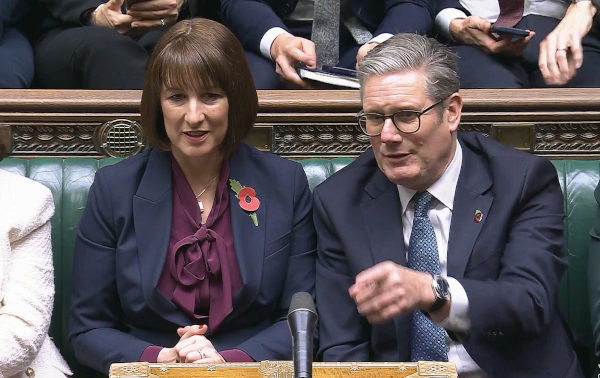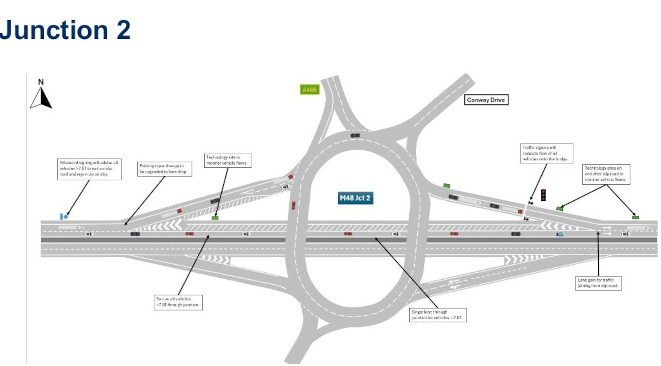Chancellor Rachel Reeves has announced an extra £500m a year for local roads maintenance from next year and an ‘interim' settlement for the national network to keep strategic projects moving.
In her first Budget as chancellor, Ms Reeves argued that potholes had become a visible symbol of the ‘national decline' the Labour party is committed to reversing with plans to ‘invest, invest, invest'.
The Budget document confirms the ‘nearly 50% increase, on 2024-25, in funding for local roads maintenance' which would see the Treasury allocating almost £1.6bn in local roads maintenance.
She stressed that the extra cash for the local authority networks went beyond went beyond the one-off £320m that had been earmarked to fix an additional one million potholes across England each year of this parliament.
However, the funding appears to be a one-off as the Treasury document refers to ‘temporary uplifts to local roads maintenance funding' – which play a part in bring the department's capital growth rate down between 2023-24 and 2025-26.
This means the cash injection could be only £180m more than previously planned for this Parliament.
There will be ‘an additional £100m investment in cycling and walking infrastructure in 2025-26, to support local authorities to install cycling infrastructure and upgrade pavements and paths', however.
On the national network, the Government has outlined plans for an 'interim roads settlement' without specifying the amount, ahead of the confirmation of the third road investment strategy (RIS) next year.
While the Spending Review next spring seems set to announce multi-year funding for both local and national roads, National Highways appears to have been granted some transition cash to keep operations going while it waits for the RIS.
The Budget document states: ‘Roads investment in 2025-26 will be funded through an interim roads settlement, and the third Road Investment Strategy will be set out in the next phase of the Spending Review. The government will also move toward feasibility work on improvements to the A75 by providing up to £5 million in 2025-26.'
This interim settlement will support progress on ‘key strategic road schemes, such as dualling sections of the A47, where work has begun to improve connectivity between East Anglia and the North, and on the A57, where work will start in the coming weeks to improve journey times between Sheffield and Greater Manchester'.
However the Treasury also announced further axed road schemes after dropping the A303 Stonehenge tunnel and the A27 schemes.
‘After a review the Transport Secretary has decided not to progress with the following unfunded and unaffordable road schemes on the strategic road network: A5036 Princess Way, A358 Taunton to Southfields, M27 J8 Southampton, the A47 Great Yarmouth Vauxhall Roundabout and A1 Morpeth to Ellingham,' the Budget document states.
The Budget also provided further support to decarbonise the transport sector by:
- Investing over £200m in 2025-26 to accelerate the roll-out of electric vehicle charging infrastructure, including funding to support local authorities to install on-street charge points across England.
- Providing £120m in 2025-26 to support the purchase of new electric vans through the plug-in vehicle grant and to support the manufacture of wheelchair-accessible electric vehicles.
- Extending the Advanced Fuels Fund for a further year to support the producers of sustainable aviation fuel.
In total, the Department for Transport's settlement provides a 'departmental expenditure limit' of £30bn in 2025-26 - a £1.2bn year-on-year cash increase in 2025-26.
However, the average annual real terms growth in the DfT budget between 2023-24 to 2025-26, excluding depreciation, is expected to be minus 0.7% - the Treasury put this down to ‘the reduction to the rail services subsidy as passenger numbers continue to recover post-pandemic'.
On top of the Government's plans for 10-year industrial strategy, Ms Reeves also outlined plans to develop its investment protocols, including four 'guardrails' to protect investment.
She said: ‘First, our portfolio of new financial investments will be delivered by expert bodies like the National Wealth Fund, which must, by default, earn a rate of return at least as large as that on gilts. Second, we will strengthen the role of institutions to improve infrastructure delivery.
‘Third, we will improve certainty setting capital budgets for five years and extending them at every spending review every two years.
'Finally, we will ensure that there is greater transparency for capital spending with robust annual reporting of financial investments based on accounts audited by the National Audit Office and made available to the Office for Budget Responsibility at every forecast.
'Taken together with our stability rule, these fiscal rules will ensure that our public finances are on a firm footing, while enabling us to invest prudently.'
































